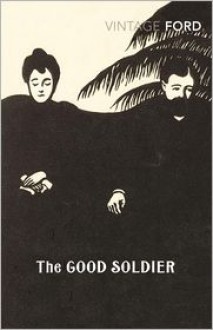The Good Soldier
A masterpiece of literary modernism, The Good Soldier tells of the complex social and sexual relationships between two couples, one English, one American, and the growing awareness by the American narrator of the intrigues and passions behind their orderly Edwardian facade.
A masterpiece of literary modernism, The Good Soldier tells of the complex social and sexual relationships between two couples, one English, one American, and the growing awareness by the American narrator of the intrigues and passions behind their orderly Edwardian facade.
show less
Format: paperback
ISBN:
9780099540670 (0099540673)
Publish date: July 9th 2010
Publisher: Random House UK
Pages no: 252
Edition language: English

I have mixed feelings about this book. It's delivery is more impressive than its substance. It is told by an unreliable narrator in a chatty fireside style, but the narrator reveals that he wrote it over a long period and the information that he gives away and also his attitude shifts throughout the...

This book: it is so quiet, so unassuming that it sneaks up on you. You are maybe even sort of wondering why it’s a classic when it tells (you think) such a banal story. But in fact, while telling you one story, eventually another bleeds through. The presenting story: a man of a certain age, disencha...

Ford Madox Ford's 1915 novella The Good Soldier famously begins with the line, "This is the saddest story I have ever heard" (Part I, Chapter I*). It is a truly tragic tale. All the characters are caught between their own personality flaws and the expectations society holds for what are considered "...

I liked it. Mostly. To be precise, up to two-thirds; after that, the subject matter, the narrator (for it is largely a retrospective, first-person narrative by a middle-aged white male), and the style (increasingly exalted - think schoolgirls, not nobility) began to tire me. I think it was partly be...

The Good Soldier is the story of an American and an English couple and their various and interesting interactions. It's told in an Impressionist style, which I don't really like, to be honest, although I can see the literary merit in it - i.e. it's not told in chronological order but as if a real pe...






 11 years ago
11 years ago




 11 years ago
11 years ago